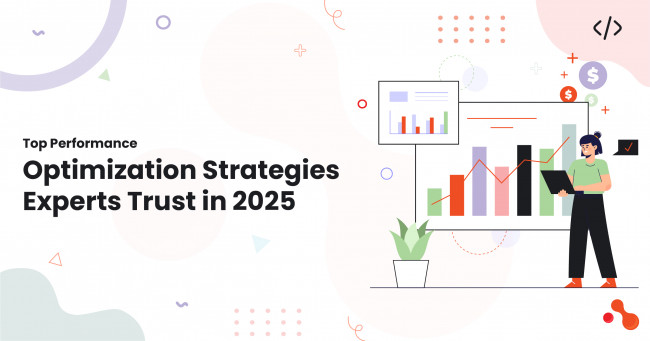
Salesforce Marketing Cloud is a powerful platform that enables businesses to create and execute data-driven marketing campaigns across multiple channels. However, simply having access to this technology is not enough to achieve success. To fully leverage the capabilities of Salesforce Marketing Cloud, businesses must also implement industry best practices for marketing automation and data management. In this guide, we will explore the top best practices for implementing Salesforce Marketing Cloud, and how they can help businesses achieve their marketing goals. By following these practices, businesses can optimize their marketing efforts and drive greater ROI from their investment in Salesforce Marketing Cloud.
Industry best practices refer to a set of guidelines, methods, and techniques that have been proven to be effective in achieving success in a particular field. In the case of Salesforce Marketing Cloud, implementing industry best practices can help businesses achieve their marketing goals by improving the effectiveness and efficiency of their marketing campaigns.
Some common industry best practices for Salesforce Marketing Cloud include audience segmentation and targeting, personalization, data management and integration, multichannel marketing, testing and optimization, and compliance and privacy regulations. By following these best practices, businesses can create more targeted and personalized campaigns, manage and analyze their data more effectively, and stay compliant with regulations.
Overall, implementing industry best practices for Salesforce Marketing Cloud can lead to improved customer engagement, increased ROI, and a stronger brand reputation.
Planning and Strategy:
Having a solid plan and strategy is crucial for successful marketing with Salesforce Marketing Cloud. This involves defining your goals, target audience, messaging, and tactics to achieve your objectives. Tips for creating a successful plan and strategy include:
Conducting market research to understand your target audience and competition Setting clear, measurable goals that align with your business objectives
Developing a messaging strategy that resonates with your audience
Identifying the best channels to reach your target audience
Creating a content strategy that aligns with your messaging and channels
Establishing a budget and timeline for your marketing initiatives.
Audience Segmentation and Targeting:
Effective audience segmentation and targeting is critical for reaching the right people with the right message at the right time. This involves breaking down your audience into specific segments based on factors such as demographics, interests, behaviors, and engagement history. Best practices for segmenting audiences and targeting campaigns include:
=> Defining your buyer personas and their unique needs and pain points
Using data to segment your audience based on demographics, behaviors, and preferences
=> Creating targeted campaigns that speak to the specific needs and interests of each segment
=> Testing and optimizing your campaigns to improve targeting and increase engagement
=> Using automation and personalization to deliver the right message to the right person at the right time
Personalization:
Personalization is a key element of effective marketing and can help businesses connect with customers on a deeper level. Businesses can increase engagement and drive conversions by tailoring messaging and content to individual preferences and behaviors. Some best practices for creating personalized content and campaigns include leveraging customer data to inform messaging, using dynamic content and personalization tokens, and creating targeted email campaigns based on customer behavior and preferences.
Data Management and Integration:
Effective data management and integration are crucial for successful marketing efforts. By integrating data from various sources, businesses can gain a comprehensive view of their customers and tailor messaging and content accordingly. Best practices for managing and integrating data include regularly auditing data sources and systems, establishing data governance policies, and using data cleansing and normalization tools.
Multichannel Marketing:
Multichannel marketing involves reaching customers across various channels, such as email, social media, and mobile. By using a multichannel approach, businesses can ensure that they are reaching customers where they are and providing a consistent experience across channels. Best practices for implementing multichannel marketing strategies include creating a cohesive messaging strategy across channels, leveraging data to inform channel-specific messaging and targeting, and regularly testing and optimizing campaigns across channels.
Testing and Optimization:
Testing and optimization are important aspects of marketing that can help improve campaign results. Best practices for testing and optimization include:
=> Define clear goals and metrics for your campaigns
=> Use A/B testing to test different variations of your campaigns
=> Test small changes at a time to isolate the effects of each change
=> Monitor results and adjust campaigns accordingly
=> Continuously optimize campaigns for better results
Compliance and Privacy:
=> Compliance and privacy are critical considerations in marketing to ensure that customer data is protected and regulations are followed. Best practices for compliance and privacy include:
=> Stay up-to-date with relevant regulations such as GDPR, CCPA, and CAN-SPAM
=> Obtain proper consent from customers before collecting and using their data
=> Implement proper security measures to protect customer data
=> Provide opt-out options for customers who do not wish to receive marketing communications
=> Conduct regular audits to ensure compliance with regulations and industry standards
Conclusion
In conclusion, implementing industry best practices for Salesforce Marketing Cloud is crucial for businesses to achieve their marketing goals effectively. It involves having a solid plan and strategy in place, proper audience segmentation and targeting, personalized content and campaigns, effective data management and integration, multichannel marketing strategies, and continuous testing and optimization for better results. Compliance with privacy regulations and protection of customer data is also vital in ensuring the success of marketing efforts. By following these best practices, businesses can leverage the power of Salesforce Marketing Cloud to engage customers, drive revenue, and achieve long-term success in their marketing efforts.














